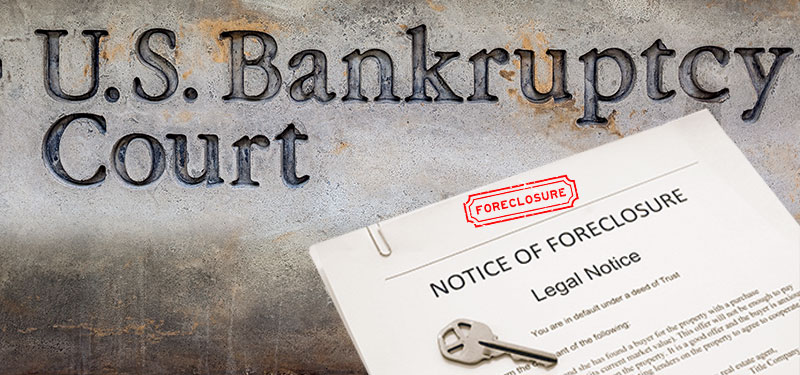It has long been commonplace for mortgagors to attack all aspects of a bank’s mortgage foreclosure sale in order to invalidate the foreclosure sale and retain the mortgaged property. There have been far fewer such attacks on the validity of a statutory condominium lien foreclosure, and no prior Massachusetts case has determined when the unit owner’s right of redemption is extinguished, until now. A 2022 Bankruptcy Court decision, In Re: Chaomei Hu, 639 B.R. 8 (Bankr. D. Mass 2022) upheld a condominium lien foreclosure under Massachusetts General Laws, Chapters 183A and 254 despite attacks on the validity of the lien sale by the bankruptcy debtor.
Despite the Bankruptcy Court’s favorable ruling for In Re: Chaomei Hu, we should all be aware that the next case brought by a unit owner may contain additional facts that cause a judge to rule differently.
The facts of In Re: Chaomei Hu are as follows:
Ms. Hu purchased her unit in 2016 and there were no recorded mortgages encumbering the unit. The Condominium Association obtained Judgment to foreclose in 2018, but Ms. Hu filed a Chapter 13 Bankruptcy before the lien sale was held. At some point in 2019, while the bankruptcy proceeding was ongoing, Ms. Hu moved out of her unit and provided no forwarding address information to either the Court or the Condominium Association. Ms. Hu installed a tenant in the unit who caused numerous issues at the condominium and basically terrorized other occupants. Ms. Hu failed to make ongoing post-petition common expense payments after April 1, 2021. The Bankruptcy Court dismissed the bankruptcy on June 2, 2021 for failure to make the Chapter 13 Plan payments. As Ms. Hu never cured the arrearages due and owing, the Condominium Association re-scheduled the lien foreclosure sale for January 20, 2022.
Prior to the lien sale, Condominium Association counsel sent notice of the sale to Ms. Hu to the only addresses it had for her, one which was a prior address and the other which was the unit address. The lien sale was held on January 20, 2022 and the unit sold to a third party. After the sale, but prior to the closing to the third party, Ms. Hu filed another Chapter 13 bankruptcy on February 11, 2022, alleging that the lien sale was invalid as she was not provided with verbal and/or written notice of the lien sale and further arguing that pursuant to M.G.L. c 254, § 5 that as the closing was not yet consummated, the “sale” had not yet taken place and her right of redemption had not been terminated.
The Condominium Association filed an Emergency Motion for Relief from Stay with the Bankruptcy Court seeking authority to proceed with the closing to the third party, arguing that the term “sale” referred not to the closing, but to the lien sale itself and that the right of redemption was extinguished once the auctioneer declared the property sold and the memorandum of sale had been executed by the buyer.
Ms. Hu’s first claim was that the foreclosure sale was invalid because the Condominium Association failed to comply with the strict statutory notice requirements of the M.G.L. c. 254, § 5A by not providing verbal or written notice of the lien sale. Ms. Hu’s argument referenced several mortgage foreclosure cases in which Courts held that strict compliance with the law was required and argued the Condominium Association did not act in good faith by failing to take additional steps to locate her current address. The Bankruptcy Court noted that Ms. Hu could point to no requirement that the Condominium Association had any obligation other than advertising the foreclosure sale and mailing the notice of sale to any known address of the owner. The Court even noted that M.G.L. c. 254, § 5A does not contain a specific requirement that a foreclosing condominium provide actual written notice of a lien sale. The Court further noted that Ms. Hu herself admitted at a hearing that she failed to comply with M.G.L. c. 183A, § 4(4) whereby “the unit owner shall provide written notice to the organization and said mortgagees of any changes in the name or mailing address previously provided by the unit owner.” The checks she submitted for condominium fee payments during the bankruptcy did not include an address. Further under § 4(4), “The organization and mortgagees may rely in good faith upon the most recent notice of name and address for the purpose of providing notices to the unit owner under this chapter...and such notices sent in writing to the address listed in the most recent notice of name and address, if relied upon in good faith, shall be deemed sufficiently given…”. The Bankruptcy Court held that the lien “foreclosure sale was validly conducted pursuant to applicable Massachusetts law.” Hu at p. 14.
The other issue raised by Ms. Hu concerned the question of when her right of redemption ended, which was a matter of first impression for the Court. Ms. Hu relied on the mortgage foreclosure case of In Re Mularski, 565 B.R. 203, (Bankr. D. Mass. 2017) in which the mortgagor also filed for bankruptcy after a foreclosure sale, but prior to the recording of the foreclosure sale documents, and the Chapter 7 Bankruptcy Trustee sought to hold the foreclosure avoidable under the Bankruptcy Code at 11 U.S.C. § 544(a)(3). The Mularski Court held that title was split with the foreclosing lender obtaining the legal title to the property upon sale and execution of the Memorandum of Sale and the owner holding the equity of redemption. As the Bankruptcy Trustee argued in that case, the equitable title had value for the Bankruptcy Estate and the parties ended up settling for a monetary amount so that the Bank could finalize its sale of the property to a third party. In Hu, Judge Katz stated she did not believe the facts of Mularski fit this particular scenario as Ms. Hu was not the bankruptcy trustee and was attempting to retain both full legal and equitable title to the property for her own purposes. Consequently, Judge Katz agreed with the numerous mortgage foreclosure cases presented by the Condominium Association “wherein courts have held that an owner’s equity of redemption is extinguished at the time of execution of a memorandum of sale by the high bidder at a foreclosure auction.” Hu, at p. 12. Because of these cases, foreclosure counsel notate the time when the Memorandum of Sale is executed in order to defeat any last minute bankruptcy filings designed to stop a foreclosure sale.
As Ms. Hu’s right of redemption was terminated when the lien foreclosure sale was concluded, she no longer had a right of redemption on the bankruptcy filing date, so the unit was not property of the Bankruptcy Estate and the Court allowed the Condominium Association’s Motion for Relief from Stay so that it could proceed with the closing to the third party purchaser.
Now that there is a favorable ruling as to condominium lien foreclosures, there are a few lessons to pay attention to in order to avoid future prolonged legal battles:
1. Unit Owner Mailing address. All condominiums should inquire of all owners on an annual basis as to whether there is any change in their mailing address and keep these records up to date. While M.G.L. c. 183A, § 4(4) states a change of address must be by “written notice”, realize that by today’s standards, an e-mail is legally considered to be a writing. If the condominium is sending required notices to owners via e-mail, then the owner’s e-mail notice of an address change should be sufficient for the condominium. What is not sufficient is for an absentee owner to provide only an e-mail address or telephone number as their point of contact. The statute does require a “mailing address”, and your condominium counsel also needs a mailing address in which to effectuate service in the event a lien enforcement action or other legal action is commenced. This also applies to absentee owners who live outside of the country – a physical mailing address is required.
What cannot be determined from the Court’s decision and the Condominium Association’s motions is what other efforts the Condominium Association may have undertaken to obtain alternate addresses for Ms. Hu. It has long been my practice to inquire as to name and address on check payments, search Registry records in the counties where they were last known to reside, conduct internet searches and even check with the town tax assessor’s office as to where the real estate tax bills are sent. It is not the goal of a condominium to foreclose, but to receive payment, therefore a little extra effort usually pays off with a good address and a response from the owner.
2. Notice of delinquency to owner. Understandably, I will sound like a broken record as I constantly raise this issue, but all condominiums and their management companies should send a delinquent owner notice at around forty-five days past due that should the arrearages not be cured, their account shall be referred to legal counsel for further action once the account is more than sixty days in arrears. The most common complaint I hear from unit owners after they receive the initial Notice of Lien letter from our office is that they received no prior notice from either the condominium trust or the management office that their account was in danger of being sent to legal counsel. The condominium trust and/or its management company should first send its own letter directly to the unit owner to advise them of the arrearages and see if a response can be generated – either by a payment or a conversation with the unit owner as to what their present financial situation is. This is the ideal time for the parties to enter into a repayment agreement if possible as well as to identify any potential owner address issues.
Despite the Bankruptcy Court’s favorable ruling for In Re: Chaomei Hu, we should all be aware that the next case brought by a unit owner may contain additional facts that cause a judge to rule differently. By following best practices in keeping owner information updated and notifying unit owners that delinquent accounts will be sent to legal counsel, we can hopefully avoid being the next lien sale to be challenged in Court.


